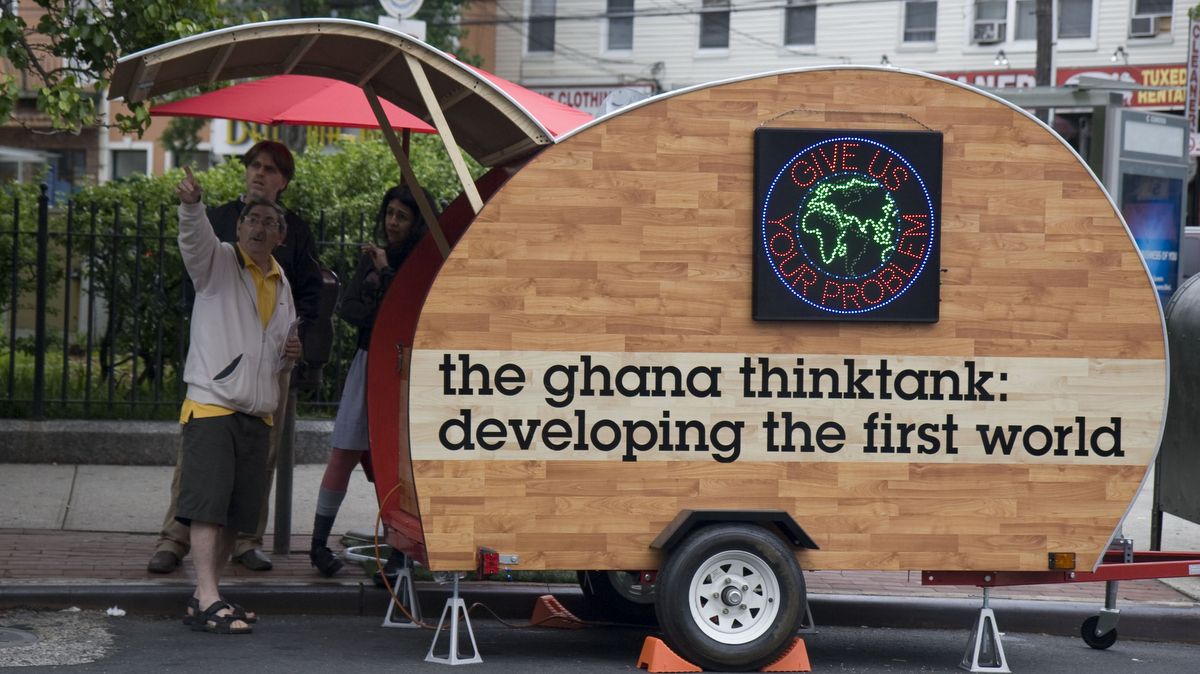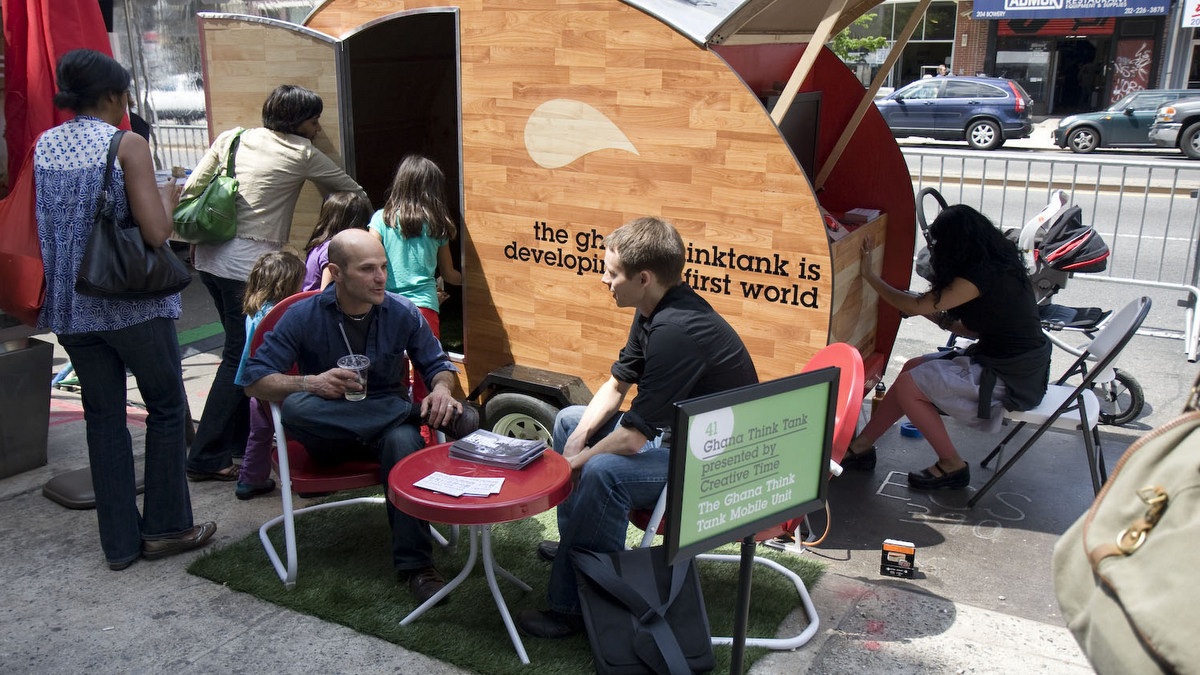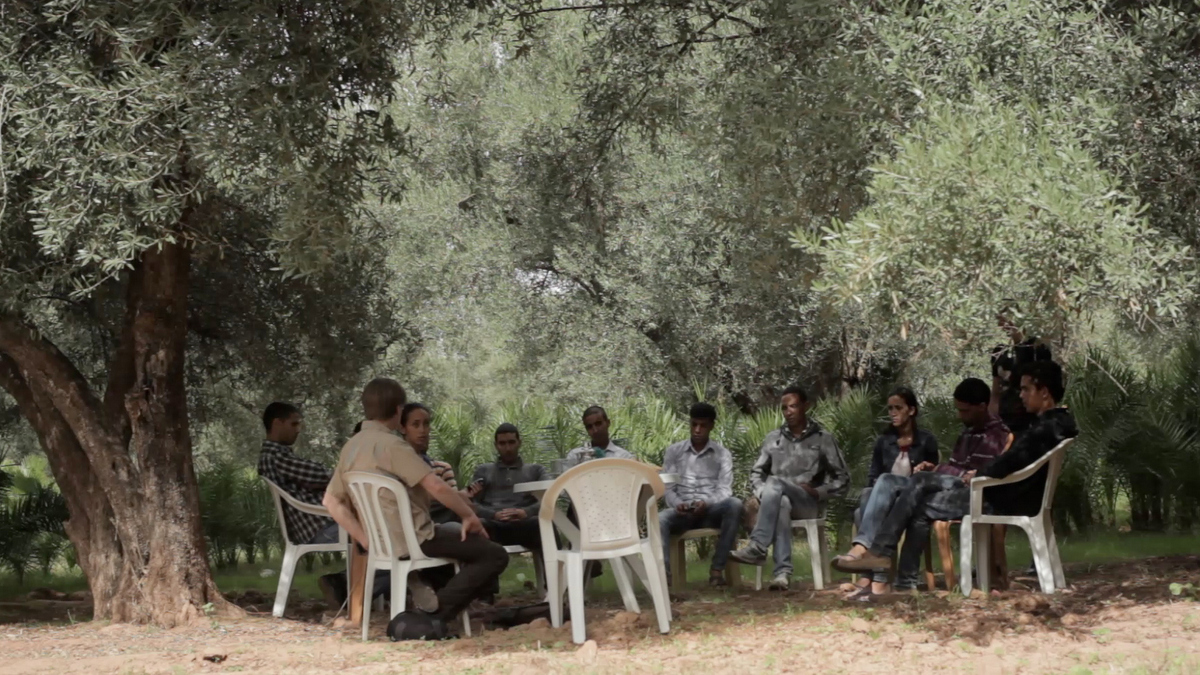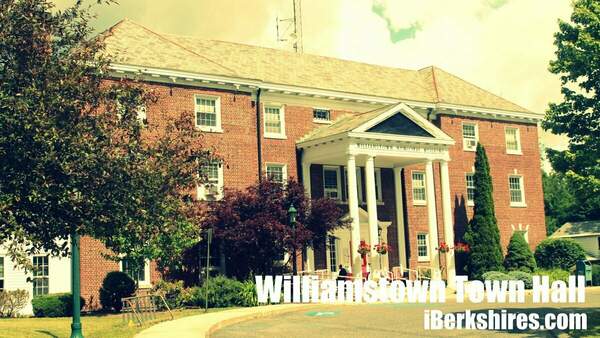


WCMA, Ghana ThinkTank Turn the Tables to Confront Climate Change
WILLIAMSTOWN, Mass. — Williams College Museum of Art is working with the international art collective Ghana ThinkTank to bring climate change solutions from Indonesia and Morocco — two countries already grappling with the devastating affects of climate change — to Williams College.
This year-long project flips the power dynamics of climate change discourse, seeking to disrupt and reframe narratives about the impact of climate change, and brings into high relief the nature of the community's perceptions of this critical issue.
The collaboration applies an innovative process that the collective has developed through projects across the globe. Ghana ThinkTank collects problems in communities throughout the United States and Europe and sends them to citizen think tanks they've created in "developing" countries like Ghana, Cuba, and El Salvador.
The think tanks — which include a group of bike mechanics in Ghana, staff members of a rural radio station in El Salvador and Sudanese refugees seeking asylum in Israel, among others — propose solutions that are then implemented in the "first world." The range of interventions and exchanges that emerge from this innovative process reveals blind spots and challenges cultural assumptions.
"What excites me most about the project is its potential to incite new and productively uncomfortable thinking at all levels by going against the grain of predominant discourse around climate change," says Sonnet Coggins, the project's curator and associate director of academic and public engagement.
The project will produce a responsive and dynamic installation in the museum's galleries to open in January 2017, but begins and develops entirely outside of WCMA's walls. An "action team" of Williams students will operate a mobile unit on campus and beyond to gather video footage of community members' responses to a single question: How does Climate Change affect YOU? The artists will then send this footage to two think tanks in Morocco and Indonesia. Each will confer to propose a set of solutions to be implemented in Williamstown and the surrounding region. Christopher Robbins, one of Ghana ThinkTank's founders, notes that Morocco and Indonesia are already battling the effects of climate change in the areas where the think tank members reside.
"We can pretend this isn't happening, or we can learn from those who are already grappling with the effects of these human-caused disasters," says Robbins.
For the first time in its practice, Ghana ThinkTank will bring members of the collaborating think tanks to the United States to advise on solution implementation, and deepen international and intercultural dialogue around the issue of climate change.
WCMA commissioned the project with Ghana ThinkTank as part of the 2016–17 campus-wide academic program called "Confronting Climate Change," a series of events, talks, and curricular initiatives aimed at raising issues around the science and policy of climate change.
"The collaboration positions artistic inquiry at the center of our deep investigation into one of the most critical political, environmental, and cultural issues of our time," says Christina Olsen, Class of 1956 Director of the museum.
Related programs include Carmen Montoya and Christopher Robbins from Ghana ThinkTank sharing their philosophy and process and fielding questions about the Williams Climate Change project at 7 p.m. Thursday, Sept. 15. And at 4 p.m. on Thursday, Sept. 29, the public is invited to stop by to contribute their thoughts about climate change by chatting with curator Sonnet Coggins and Terence Washington about the problems being collected and find out what's coming up next in the process.
Tags: WCMA,















